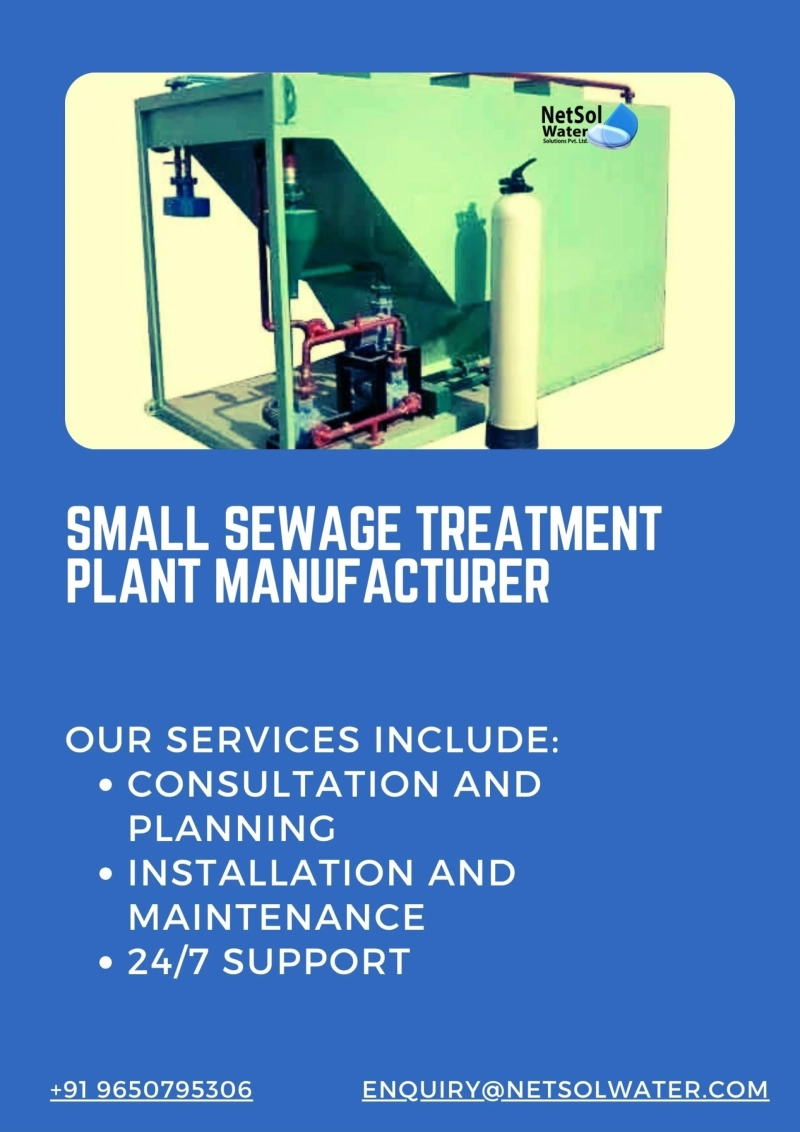In an era where environmental sustainability is at the forefront of global concerns, small sewage treatment plant manufacturers are emerging as pivotal players in the waste management industry. These innovative companies are addressing the pressing need for efficient and eco-friendly solutions to manage wastewater, particularly in areas where large-scale infrastructure is neither feasible nor cost-effective.
The Growing Demand for Small-Scale Solutions
Urbanization, population growth, and industrialization have led to an increase in wastewater production. Traditional, large-scale sewage treatment plants often struggle to keep up with this demand, especially in remote or densely populated urban areas. This gap has paved the way for small sewage treatment plant manufacturers to step in with scalable, modular solutions that cater to various needs, from small communities to individual households and businesses.
Technological Innovations
Modern small sewage treatment plants are a far cry from the rudimentary systems of the past. Today\'s manufacturers are leveraging cutting-edge technologies to enhance efficiency and reduce environmental impact. Key innovations include:
Advanced Filtration Systems: Utilizing high-efficiency filters and membranes, these plants can remove a greater percentage of contaminants, ensuring cleaner effluent.
Biological Treatment: Incorporating aerobic and anaerobic processes, these systems break down organic matter more effectively, reducing sludge production and improving overall treatment quality.
Automation and IoT Integration: Smart sensors and automated controls allow for real-time monitoring and adjustments, optimizing performance and minimizing the need for manual intervention.
Energy Efficiency: Many modern systems are designed to be energy-efficient, incorporating renewable energy sources such as solar panels to power operations, thus reducing their carbon footprint.
Benefits and Impact
The benefits of small sewage treatment plants are multifaceted:
Environmental Protection: By treating wastewater at the source, these systems prevent pollutants from entering natural water bodies, protecting ecosystems and public health.
Cost-Effectiveness: Small-scale plants are often more affordable to install and maintain compared to their larger counterparts. Their modular nature also means they can be expanded or reduced based on changing needs.
Flexibility and Accessibility: These plants are ideal for rural or remote areas where centralized sewage systems are impractical. They also serve urban locations with space constraints or existing infrastructure limitations.
Regulatory Compliance: With stringent environmental regulations in place globally, small sewage treatment plants help businesses and communities meet compliance requirements, avoiding hefty fines and contributing to sustainable practices.
Case Studies and Success Stories
Netsol Water Solutions in Asia: This manufacturer has implemented small sewage treatment plants in several rural villages, dramatically improving local water quality and reducing disease incidence.
GreenFlow Systems in Europe: By integrating renewable energy sources, GreenFlow’s installations have achieved significant energy savings, setting a benchmark for sustainability in the industry.
PureWater Technologies in North America: Specializing in customized solutions, PureWater has equipped numerous industrial clients with efficient wastewater treatment systems, helping them meet regulatory standards and reduce operational costs.
The Future of Wastewater Management
The rise of small sewage treatment plant manufacturer signifies a shift towards more decentralized and sustainable wastewater management practices. As these companies continue to innovate and adapt to changing environmental challenges, they are not only providing essential services but also paving the way for a cleaner, healthier future.
In conclusion, the small sewage treatment plant manufacturing industry is playing a crucial role in the global effort to manage wastewater more efficiently and sustainably. With continued advancements and growing adoption, these solutions are set to become a cornerstone of modern waste management strategies.



